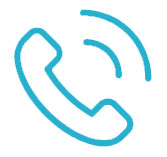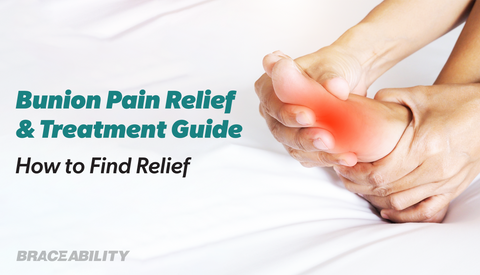Trigger Thumb in Children, AKA Congenital Trigger Thumb
What is Trigger Finger in Children?
 Trigger thumb in children is characterized by the same clicking, popping and sticking of the thumb in the bent position that adults with the condition experience. Often this is due to a nodule on the tendon that is unable to pass easily through the tendon sheath. Essentially, your fingers are made up of tendons that enable them to move and bend. In your fingers, your tendons are covered in a tunnel-like structure of tissues, called a sheath. Normally, your fingers should easily glide without any issues. However, it’s not uncommon for your tendon to become inflamed for whatever reason. This inflammation makes the tendons too swollen to properly glide throughout your sheath.
Trigger thumb in children is characterized by the same clicking, popping and sticking of the thumb in the bent position that adults with the condition experience. Often this is due to a nodule on the tendon that is unable to pass easily through the tendon sheath. Essentially, your fingers are made up of tendons that enable them to move and bend. In your fingers, your tendons are covered in a tunnel-like structure of tissues, called a sheath. Normally, your fingers should easily glide without any issues. However, it’s not uncommon for your tendon to become inflamed for whatever reason. This inflammation makes the tendons too swollen to properly glide throughout your sheath.
What Causes Trigger Finger of Thumb in Children?
While in adults there is generally thought to be some causal activity for tendon irritation, there is some evidence that it is a congenital (present from birth) condition for kids. For this reason, it is sometimes called congenital trigger thumb. But some dispute that trigger finger in children is congenital; thus, the term “pediatric trigger thumb” is used as well.
Regardless of the cause or what it is called, trigger thumb in toddlers rarely goes away without treatment. In fact, the odds of this going away on its own decrease the older the child—especially after the age of 3. Thus, it is important to seek treatment for trigger thumb.
How do I know if my Child has Trigger Finger or Thumb?
If you’re curious whether or not your child is suffering from trigger finger you’ve most likely noticed something strange happening with their fingers. If you observed that your child is struggling to open up their fingers and they are staying in a bent position, it is likely trigger finger. Attempt to straighten your child’s finger yourself, if you feel any type of resistance or pop this is a strong indicator of the condition. Trigger finger is the most common with the thumb for kids. Don’t be afraid to visit with a doctor or physical therapist to confirm your suspicions.
Is There A Natural Cure or Remedy for Trigger Finger/Thumb?
Thankfully, trigger finger is treatable and has a wide variety of different natural treatment options, some more conservative than others. We highly recommend using conservative treatment options first when it comes to your child.
Trigger Finger Splinting: Wearing a brace made specifically for trigger finger is a great way to alleviate and heal pain right away. Most people recommend wearing the brace at night to avoid any issues during the day, this may be especially helpful if your child is very young. In order to have the most support you will want a finger brace with a rigid splint, like the one pictured on the right. Splinting post surgery is often highly recommend to keep your finger isolated and protected. If you visit with a doctor and they think surgery is the best option, ask them about post surgery protocol. The other conservative options are great and help to relieve pain but may be harder in practice with a young child.
Trigger Finger Exercise: Gentle exercises to help maintain mobility in your child’s fingers will go a long way with trigger finger. Here are a few examples of the most useful and realistic exercises for a child:
Depending on the age of your child, with a little assistance this exercise should be realistic. Trigger finger exercises that work on the abduction muscles are very helpful for treatment. One simple exercise involves spreading the fingers wide, then drawing them together in a fist and repeating the process.
This exercise may easier than you think to get your child to do. This exercise incorporates grabbing a tennis ball or a stress ball. Have your child hold it in the palm of their hand and squeeze the ball for a few seconds. Read more exercise ideas to treat trigger finger.
 Trigger Finger Physical Therapy: Because the issue with trigger finger is limited mobility of the finger, using physical trigger finger therapy exercises is a great way to work it out. A physical therapist will use a variety of trigger finger exercises to help stretch and work out your child’s fingers. Often times strengthening exercises are also used to help control the movement of the hand. Highly recommended is a transverse friction massage that helps to break down the sheath.
Trigger Finger Physical Therapy: Because the issue with trigger finger is limited mobility of the finger, using physical trigger finger therapy exercises is a great way to work it out. A physical therapist will use a variety of trigger finger exercises to help stretch and work out your child’s fingers. Often times strengthening exercises are also used to help control the movement of the hand. Highly recommended is a transverse friction massage that helps to break down the sheath.
These conservative and natural treatment options are great for mild cases of trigger finger, or after you initially discover that your child has trigger finger. If you are finding no relief in conservative remedies consulting with your doctor may be the next best option
Is There Surgery To Fix Trigger Finger in Kids?
If these conservative modes of treatment for congenital trigger thumb in children fail, surgery may be needed to make it easier for the problematic tendon to move through its sheath. In adults, this typically involves releasing the A1 pulley only, but in children, this is sometimes not enough to cure pediatric trigger thumb. For some children and infants, the variable pulley, or Av pulley, must also be released. The risk of this surgery is an injury to the digital nerve. Following surgery, an immobilizing trigger thumb brace may be needed. You might have noticed this article focuses on trigger thumb. That is because the thumb is the digit most often affected for children, though the condition can occur in a child’s finger, too.










